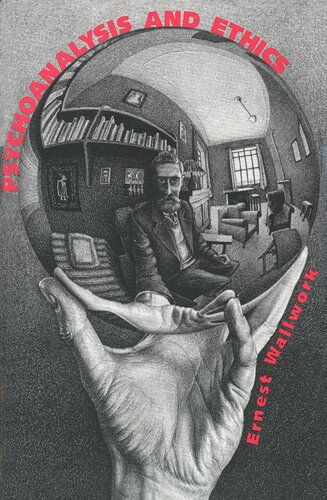

Most ebook files are in PDF format, so you can easily read them using various software such as Foxit Reader or directly on the Google Chrome browser.
Some ebook files are released by publishers in other formats such as .awz, .mobi, .epub, .fb2, etc. You may need to install specific software to read these formats on mobile/PC, such as Calibre.
Please read the tutorial at this link: https://ebookbell.com/faq
We offer FREE conversion to the popular formats you request; however, this may take some time. Therefore, right after payment, please email us, and we will try to provide the service as quickly as possible.
For some exceptional file formats or broken links (if any), please refrain from opening any disputes. Instead, email us first, and we will try to assist within a maximum of 6 hours.
EbookBell Team

0.0
0 reviewsPsychoanalysis has had a profound impact on popular morals, for Freud’s discoveries have made us aware that unconscious motivations may subvert moral conduct and that moral judgments may be rationalizations of self-interest or expressions of hostility. Freud has, in fact, been called a founder of the “hermeneutics of suspicion” that pervades modern attitudes toward morality. In this book, however, a psychoanalyst who is also a professor of ethics asserts that we do not accurately understand Freud on the various psychological issues relevant to morality and the ethical implications that can be drawn from his views. Ernest Wallwork offers a bold reinterpretation of Freudian theory, showing the ways in which it points toward the possibility of genuine moral behavior.
Wallwork provides close textual analyses of Freud’s works from a new philosophical perspective, considering such central Freudian doctrines as psychic determinism, the pleasure principle, narcissism, object-love, and defense mechanisms. He demonstrates that, contrary to widespread belief, Freud’s views on determinism allow for moral responsibility, his understanding of the pleasure principle and narcissism allows for acting out of concern of others, and his critique of the cultural superego is grounded in an ethic informed by ego rationality. Focusing throughout on Freud’s seminal understanding of the self-in-conflict, Wallwork finds and ethical theory suggested by Freud’s work that is naturalistic and grounded in a concept of human flourishing and regard for others and concerned with the common good, special relations, and individual rights.